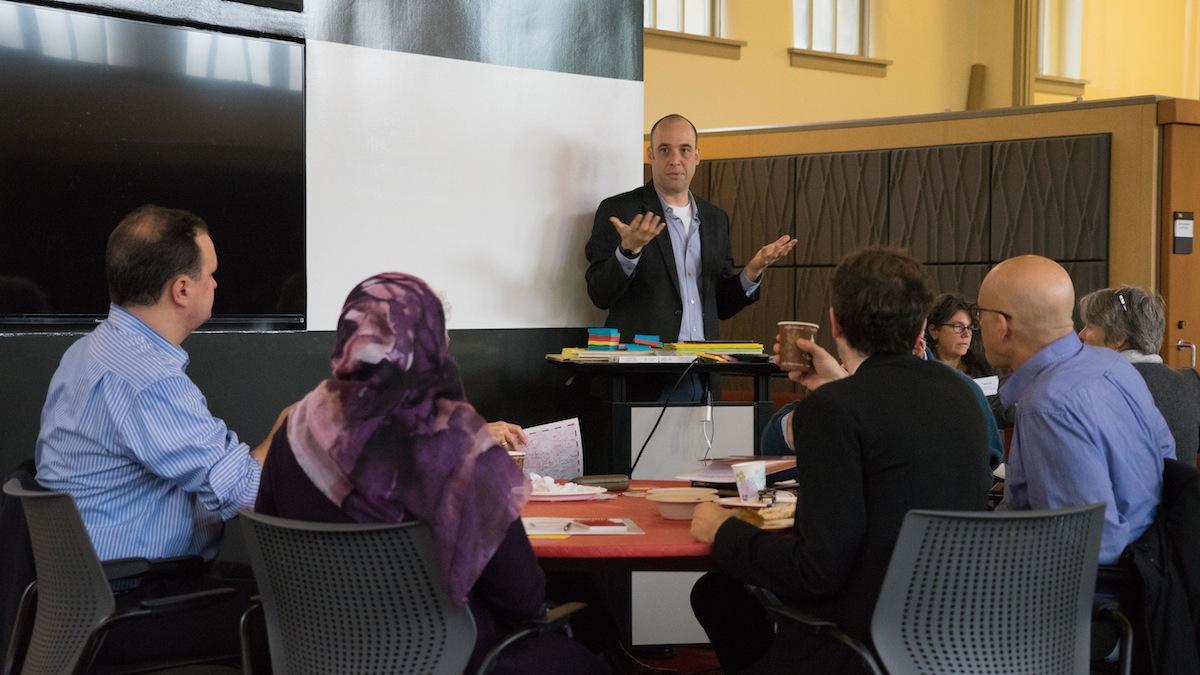
Stanford scholars meet on religion and education
Leading scholars from around the country came together at Stanford recently for a workshop exploring the intersection of religion and education.
Ari Y. Kelman, the Jim Joseph Professor of Education and Jewish Studies at Stanford Graduate School of Education, hosted the event that drew faculty and students from the fields of sociology, religion, education, philosophy, history and anthropology.
Kelman said among the goals of the daylong gathering Dec. 10 was to build a network where experts can collaborate on research and drive better understanding in the fields. He said conventional wisdom thinks of religion as something “revealed” rather than something learned or acquired.
"If we don’t try to understand how those religious perspectives are learned, we're missing a good deal of the story," he said.
The day began with sessions on the state of the field including reflections on current research. They asked what are the big questions that need exploring and how do we start answering them. They also sought to identify patterns in research and figure out what's missing from it.
Lee Shulman, emeritus professor of education at Stanford, suggested that religion and education are distinguished from other academic fields because they are also practices that people profess.
"These are human activities as well as areas of academics at research institutions," he said. "There is a special character of religion and education."
Shulman said this character poses interesting questions and problems about how and what you study with regard to religion and education. Does the pedagogy, for example, change in religious schools when students are in physics class versus religious studies class?
"This is an area of scholarship worth 40 or 50 years of your time," Shulman quipped.
Besides Shulman and Kelman, Stanford faculty who participated in the workshop included: Tanya Luhrmann of anthropology and Eamonn Callan, Ray McDermott and Mitchell Stevens of education. Other scholars joined from Harvard, Yale, University of Notre Dame, University of Virginia, Brandeis, Santa Clara University and other institutions. Clergy and educators from nearby day schools also attended.
The workshop was co-sponsored by the Graduate School of Education, the directors of the Jim Joseph Foundation, the Office of the President's Initiative on Religious Conflict and Coexistence, the Abassi Program in Islamic Studies, the Religious Studies Department and the Taube Center for Jewish Studies.
At Stanford, Kelman leads an academic concentration in Jewish studies and education, and his research focuses on the myriad ways in which people cultivate ethnic and religious identities and practices.
The conference was another way to deepen these relationships and push colleagues to think more critically and broadly about the complex circumstances in which people engage with religious ideas and community in the context of education.
"The next step," Kelman said, "is to activate this new network and get some good research projects running."



